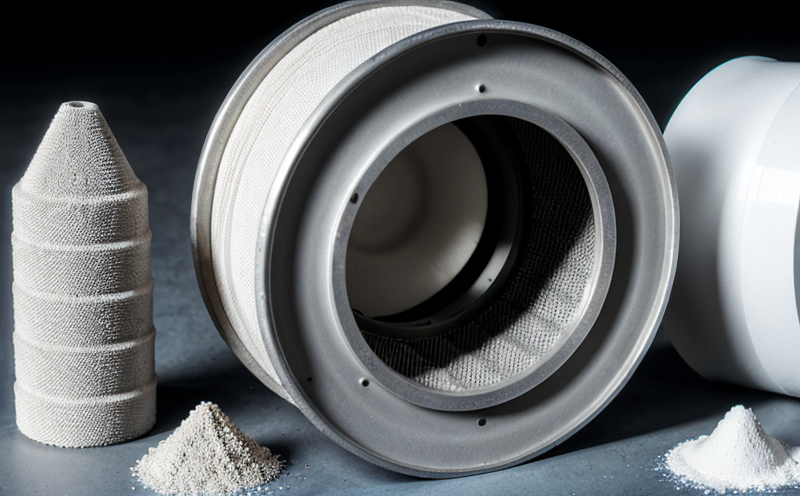IMO FSS Code Compliance Testing of Fire Safety Systems
The International Maritime Organization (IMO) FSS (Fire Safety Systems) Code is a crucial regulatory framework that ensures the safety and security of marine environments by setting stringent standards for fire protection systems aboard ships. This service focuses on the testing and certification required to ensure compliance with these codes, specifically for fire safety systems. Compliance testing involves rigorous evaluations using internationally recognized methods and standards.
Our laboratory is equipped with state-of-the-art facilities and experienced personnel who specialize in this area. We understand that each system must be tested according to its unique design and application requirements. Our team works closely with clients to ensure that all tests are conducted precisely as specified by the IMO FSS Code, ensuring accurate results and reliable certification.
The testing process typically involves multiple stages, including initial inspection of the equipment, pre-test verification checks, actual testing under controlled conditions, post-test analysis, and finally, a comprehensive report. Compliance with the IMO FSS Code is mandatory for all shipbuilders and operators to ensure that their vessels meet international safety standards.
Our services are tailored to meet the needs of various stakeholders involved in marine equipment manufacturing and operations, including quality managers, compliance officers, R&D engineers, and procurement specialists. By choosing our service, these professionals can ensure that they stay ahead of regulatory changes and maintain a competitive edge in their respective fields.
| Applied Standards | Description |
|---|---|
| ISO 8407:1987 | Hydrostatic testing of fire hoses and connections |
| ASTM E1677-03(2018) | Standard test method for determining the flammability characteristics of materials using a cone calorimeter |
| EN 14254:2013 | Fire safety systems on ships - Guidelines and recommendations |
| IEC 60750-1:2020 | Test methods for fire protection systems of ships - Part 1: General requirements |
The testing process begins with thorough inspection and documentation of the equipment. This includes reviewing design drawings, assembly instructions, and any other relevant technical data provided by manufacturers or suppliers. Pre-test checks are then conducted to ensure that all components are correctly installed and ready for testing.
Testing itself can involve various methods depending on the system being evaluated. For example, fire hose assemblies may undergo hydrostatic testing per ISO 8407:1987, while materials used in these systems might be tested using ASTM E1677-03(2018) to assess their flammability characteristics.
Post-test analysis involves evaluating the performance of each system against established criteria outlined in the IMO FSS Code. A detailed report summarizing all test results is provided, along with recommendations for any necessary modifications or improvements.
By partnering with us, clients receive not only compliance testing but also expert advice on how to improve their products and processes further. Our team remains up-to-date with the latest developments in maritime safety regulations so that we can provide accurate guidance throughout the entire process.
Applied Standards
The following standards are used when conducting IMO FSS Code compliance testing:
| Standard | Description |
|---|---|
| ISO 8407:1987 | Hydrostatic testing of fire hoses and connections. |
| ASTM E1677-03(2018) | Determining the flammability characteristics of materials using a cone calorimeter. |
| EN 14254:2013 | Fire safety systems on ships - Guidelines and recommendations. |
| IEC 60750-1:2020 | Test methods for fire protection systems of ships - Part 1: General requirements. |
The application of these standards ensures that the testing process adheres to internationally recognized practices, providing reliable and consistent results. It also helps manufacturers demonstrate their commitment to quality and safety when it comes to shipboard fire safety systems.
Industry Applications
- Maintaining compliance with international regulations for shipbuilders and operators.
- Ensuring product reliability through rigorous testing before market release.
- Providing third-party validation of manufacturer claims regarding the performance capabilities of fire safety systems.
- Aiding in identifying potential weaknesses or areas needing improvement within existing designs.
The results of our tests are invaluable for companies operating in this highly regulated sector, helping them maintain a strong reputation and ensuring they meet all relevant requirements. This can lead to increased customer confidence as well as reduced risk associated with non-compliance penalties.
Use Cases and Application Examples
- Testing fire hose assemblies for hydrostatic strength according to ISO 8407:1987.
- Evaluating the flammability of materials used in fire protection systems using ASTM E1677-03(2018).
- Assessing the overall effectiveness of smoke detection and suppression systems through real-world scenario simulations based on EN 14254:2013.
- Verifying that automatic sprinkler systems function correctly under simulated fire conditions following IEC 60750-1:2020 guidelines.
In addition to these specific applications, our laboratory also offers comprehensive support for other aspects of shipboard fire safety equipment design and manufacturing. This includes assistance with selecting appropriate materials, optimizing system configurations, and ensuring proper integration into overall vessel architecture.





